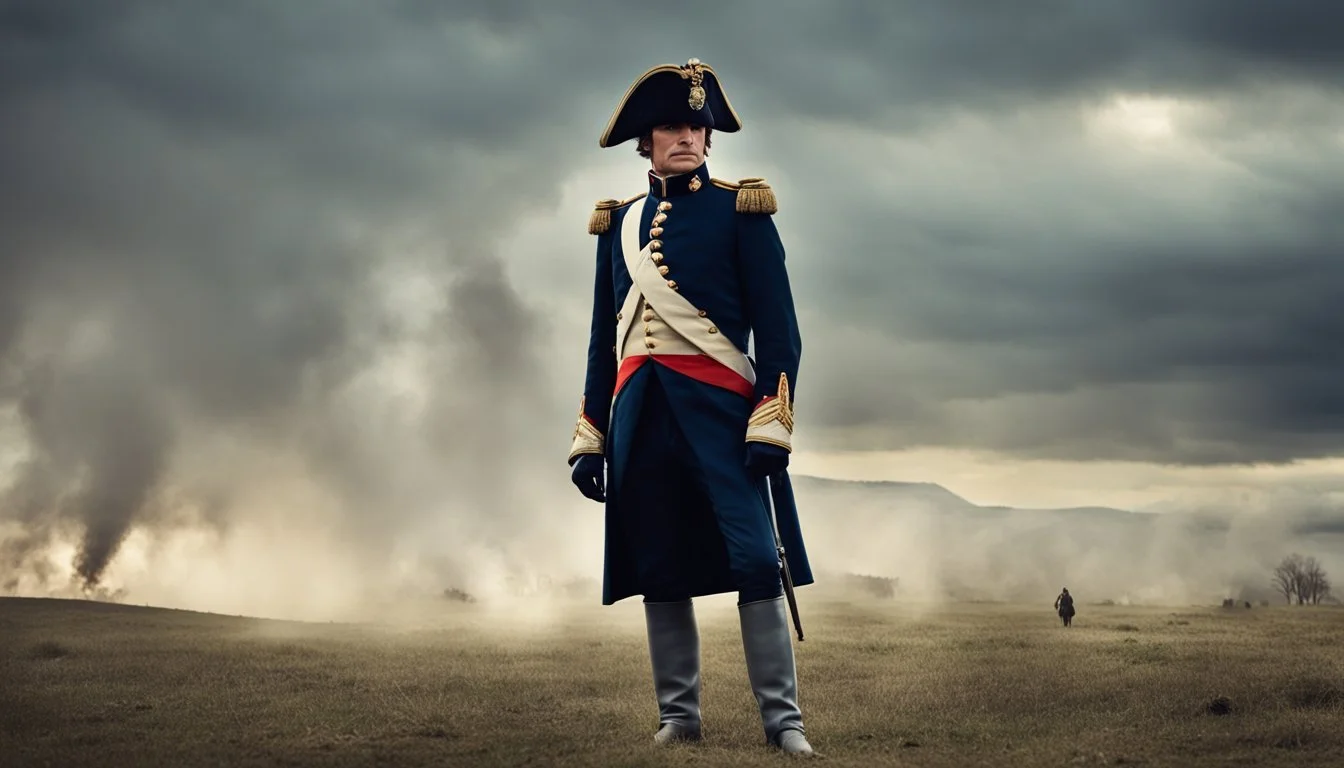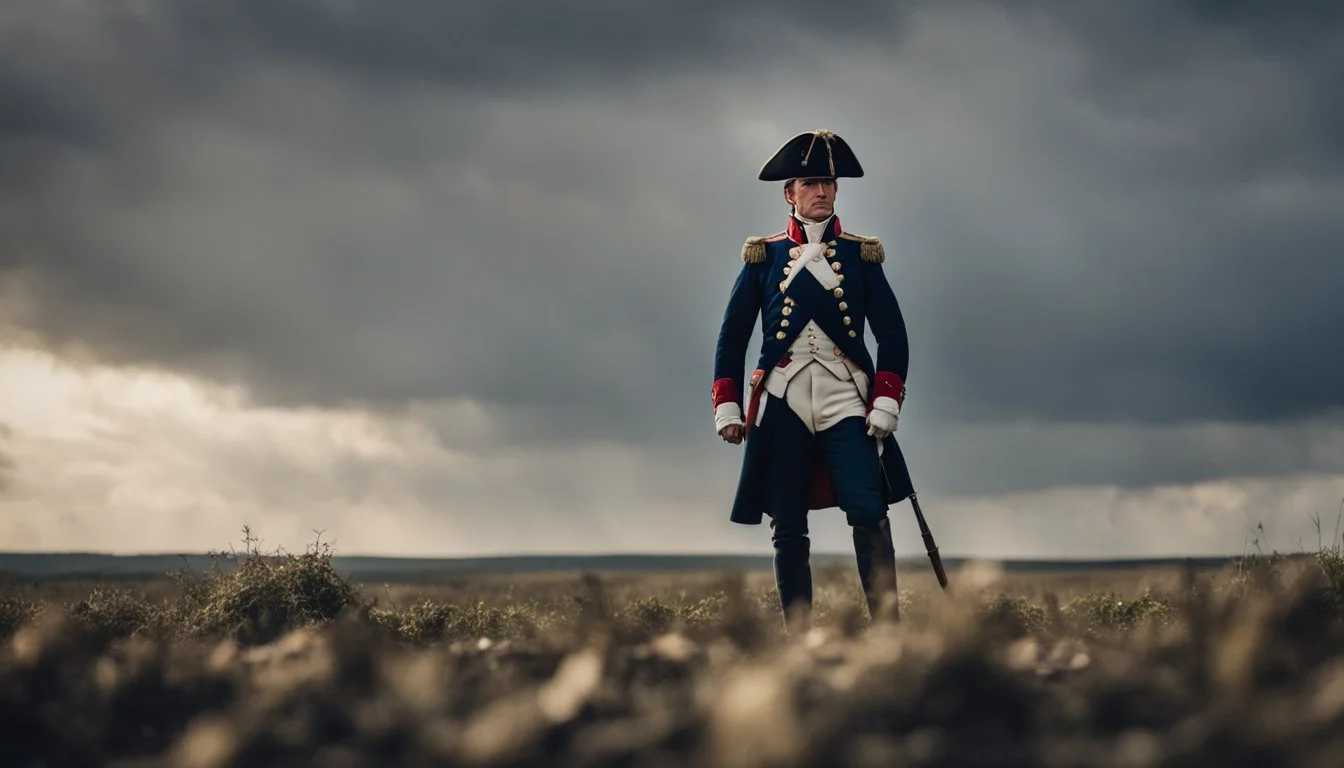5 Documentaries about Napoleon Bonaparte
Unveiling the Emperor's Life and Legacy
Napoleon Bonaparte remains one of history's most captivating figures, whose impact on Europe and beyond continues to spark interest and debate. His rise from a relatively obscure Corsican to Emperor of France, along with his strategic brilliance in military campaigns, has been the subject of many documentaries. These visual narratives offer insights into his personal and political life, painting a comprehensive picture of his legacy.
For those seeking a deeper understanding of Napoleon's life and the era he shaped, exploring documentaries provides an engaging and informative experience. From detailed examinations of his military tactics to personal anecdotes drawn from his letters, these films offer varied perspectives that enrich the viewer's knowledge of one of the most iconic figures in modern history.
1) Napoleon (2015)
This three-part documentary, released in 2015, captures the life and legacy of Napoleon Bonaparte. It is presented by historian Andrew Roberts, who brings his deep expertise to the series.
Roberts retraces Napoleon's footsteps, providing unique insights into his personality and leadership. His access to an archive of personal letters offers an intimate view of Napoleon's thoughts and strategies.
The documentary covers significant events, from Napoleon's rise to power to his eventual downfall. Each episode delves into different stages of his life, painting a comprehensive picture of this complex figure.
For more information, visit IMDb.
2) Waterloo: Napoleon's Last Gamble (2015)
"Waterloo: Napoleon's Last Gamble" delves into the historic Battle of Waterloo, marking the end of Napoleon's military career. This documentary is a part of the 'Making History Series'.
Hosted by historian Andrew Roberts, it provides a detailed analysis of the events on June 18, 1815. The film combines historical narratives with recent research, showcasing the pivotal moments that led to Napoleon's defeat.
One of the key elements discussed is the unexpected cavalry debacle, which many historians believe was a crucial turning point in the battle. The documentary presents this moment with clear-cut details, emphasizing human errors and strategic missteps.
The film's approach is both cinematic and educational, ensuring that viewers grasp the magnitude of Waterloo's impact. Roberts's expertise and engaging storytelling make this documentary a valuable resource for those interested in Napoleonic history.
3) Ten Days That Shook the World: Napoleon
"Ten Days That Shook the World: Napoleon" is a fictional exploration of Napoleon Bonaparte's impact on world history over a ten-day period.
The film portrays significant moments from Napoleon's rise to power, focusing on key events and decisions that shaped his legacy. It highlights his strategic brilliance and controversial choices.
Released in 1928, this documentary blend of drama and historical narrative captures the essence of Napoleon's era. The detailed portrayal of battles, political maneuvers, and personal moments offer a vivid picture of the man behind the legend.
For more details about this film, visit IMDb.
4) The Napoleon Complex (2009)
"The Napoleon Complex" is a TV series that first aired in 2009, delving into the fascinating and tumultuous life of Napoleon Bonaparte. This series provides a deep exploration of the man behind the legend, examining his rise to power, his military genius, and the psychological complexities that drove his ambition.
Throughout the series, viewers are taken on a journey through Napoleon's early years in Corsica, his rapid ascent through the French military ranks, and his crowning as Emperor of the French. The show meticulously covers his strategic brilliance in numerous battles, his sweeping reforms in governance, and the personal challenges he faced.
"The Napoleon Complex" combines expert interviews, dramatic reenactments, and historical analysis to paint a detailed portrait of Napoleon. It delves into the controversies and challenges that marked his reign, including his eventual downfall and exile.
The series is not just a recounting of historical events but also an investigation into the psychological aspects of Napoleon's character. It explores the traits and behaviors that contributed to his successes and failures, offering a nuanced understanding of one of history's most iconic figures.
For more details, see The Napoleon Complex on IMDb.
5) The Triumph and Tragedy of Napoleon Bonaparte (1997)
"The Napoleon Complex" is a TV series that first aired in 2009, delving into the fascinating and tumultuous life of Napoleon Bonaparte. This series provides a deep exploration of the man behind the legend, examining his rise to power, his military genius, and the psychological complexities that drove his ambition.
Throughout the series, viewers are taken on a journey through Napoleon's early years in Corsica, his rapid ascent through the French military ranks, and his crowning as Emperor of the French. The show meticulously covers his strategic brilliance in numerous battles, his sweeping reforms in governance, and the personal challenges he faced.
"The Napoleon Complex" combines expert interviews, dramatic reenactments, and historical analysis to paint a detailed portrait of Napoleon. It delves into the controversies and challenges that marked his reign, including his eventual downfall and exile.
The series is not just a recounting of historical events but also an investigation into the psychological aspects of Napoleon's character. It explores the traits and behaviors that contributed to his successes and failures, offering a nuanced understanding of one of history's most iconic figures.
For more information on the TV series, see the IMDb page here.
The Life of Napoleon Bonaparte
Napoleon Bonaparte, born on the island of Corsica, emerged as a military genius and influential leader in European history. From his early years to his final exile, his life is a series of ambitious quests, tactical warfare, and ultimate downfall.
Early Years and Rise to Power
Napoleon was born on August 15, 1769, in Ajaccio, Corsica. His family was minor nobility but not wealthy. He attended military school in France, showing a keen intellect and strong leadership skills. At 24, he became a general after his success in the Siege of Toulon.
In 1799, Napoleon staged a coup d'état, establishing the Consulate and positioning himself as First Consul. By 1804, he had declared himself Emperor of the French, using his extensive military campaigns and political reforms to consolidate power across Europe.
Military Campaigns and Strategies
Napoleon's military prowess was evident in battles like Austerlitz (1805), where he defeated the Russian and Austrian armies. His innovative tactics and strategies included the use of concentrated artillery, rapid troop movements, and the strategic use of cavalry.
He extended French influence through campaigns in Italy, Egypt, and across the German and Austrian territories. His Continental System aimed to weaken Britain economically by disrupting trade. Despite his military brilliance, his Russian campaign of 1812 was disastrous, leading to significant losses.
Exile and Final Years
After a series of defeats, especially the crucial Battle of Leipzig in 1813, Napoleon was forced to abdicate in 1814. He was exiled to the island of Elba but escaped in 1815, regaining power for a brief period known as the Hundred Days.
His final defeat at the Battle of Waterloo (1815) by the British-led coalition marked the end of his reign. Napoleon was exiled again, this time to the remote island of Saint Helena, where he spent his remaining years. He died on May 5, 1821, under British custody.
Impact and Legacy of Napoleon's Rule
Napoleon Bonaparte's rule had profound and long-lasting effects on legal systems, cultural institutions, scientific advancements, and the geopolitical landscape of Europe.
Legal Reforms and The Napoleonic Code
One of Napoleon's most significant contributions was the establishment of the Napoleonic Code. Officially enacted in 1804, this legal framework reformed existing laws in France. It emphasized clearly written and accessible laws that discarded feudal privileges and rights based on birth.
The code influenced jurisdictions far beyond France. It served as a foundation for civil law codes in many countries, including Italy, the Netherlands, and Spain. Some American states also integrated aspects of the Napoleonic Code into their legal systems.
Additionally, the Napoleonic Code introduced concepts such as secular law and the equality of all male citizens before the law, which were revolutionary at the time. These principles established a new legal order that continues to affect modern legal systems.
Cultural and Scientific Influence
Napoleon's era was marked by a flourishing of arts and sciences often supported by the state. He was an ardent patron of the arts, commissioning works that celebrated his reign and military successes. The period saw extensive archaeological explorations, most notably in Egypt, which greatly enhanced Western knowledge of ancient civilizations.
In science, the metric system was standardized under his rule, providing a consistent and unified system of measurement. Research in engineering, mathematics, and medicine also advanced significantly during his tenure.
Museums like the Louvre were created or expanded, making art and culture more accessible to the public. This democratization of culture helped foster a wider appreciation for the arts and sciences across France and eventually, Europe.
Napoleon's Influence on Modern Europe
Napoleon's military campaigns and reorganizational strategies left a lasting legacy on the continent’s geopolitical map. The dissolution of the Holy Roman Empire and the reshaping of the German states sowed the seeds for the future unification of Germany.
His policies also boosted nationalism. In occupied territories, the spread of Napoleonic ideals of liberty and equality inspired movements for national independence and unification. Countries such as Italy and Poland were notably influenced by these ideas.
Furthermore, the continental system and his economic policies accelerated the decline of feudal systems in Europe, fostering an environment conducive to the Industrial Revolution. These changes had far-reaching effects, contributing to modern Europe's political and economic structure.




